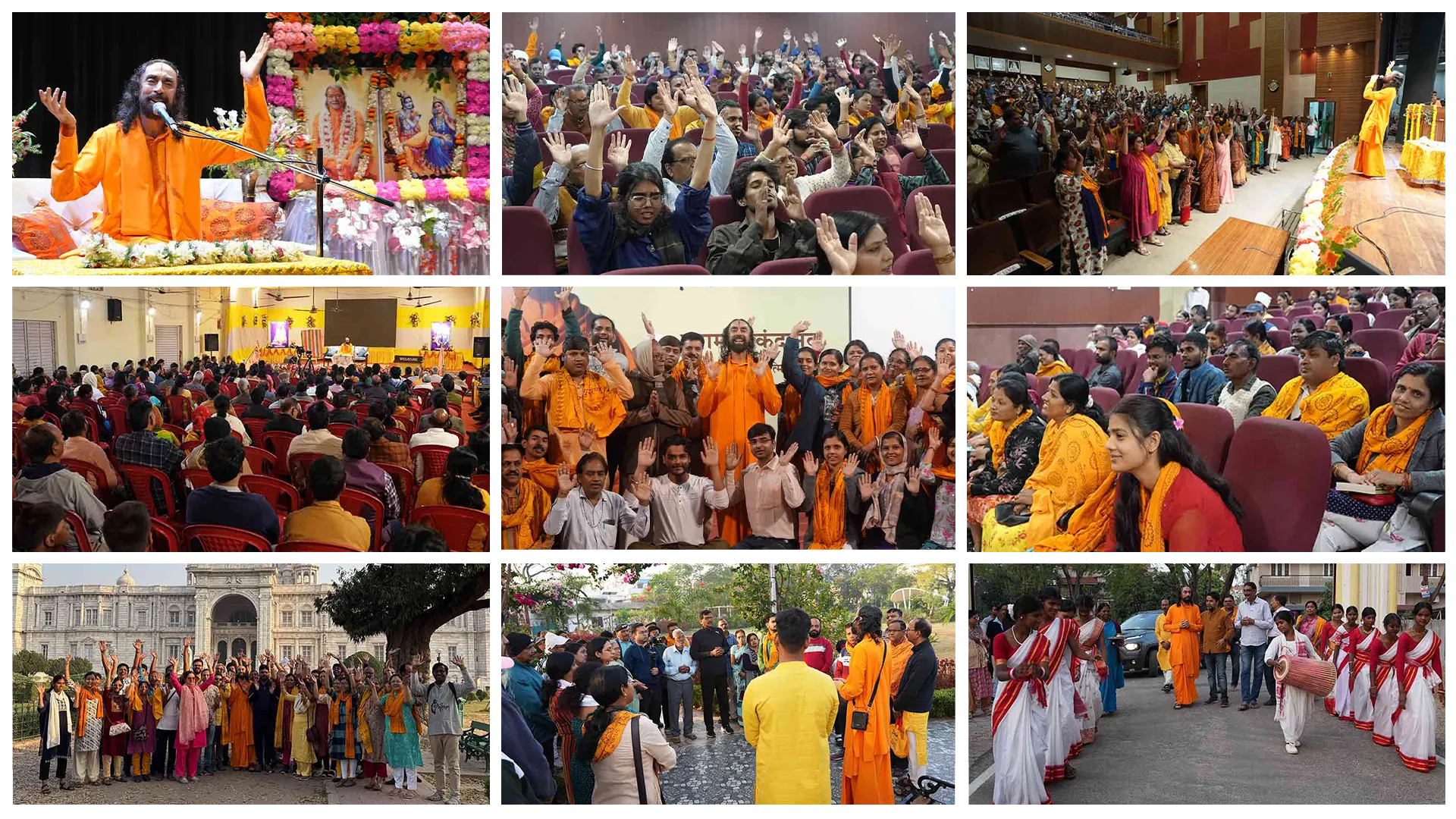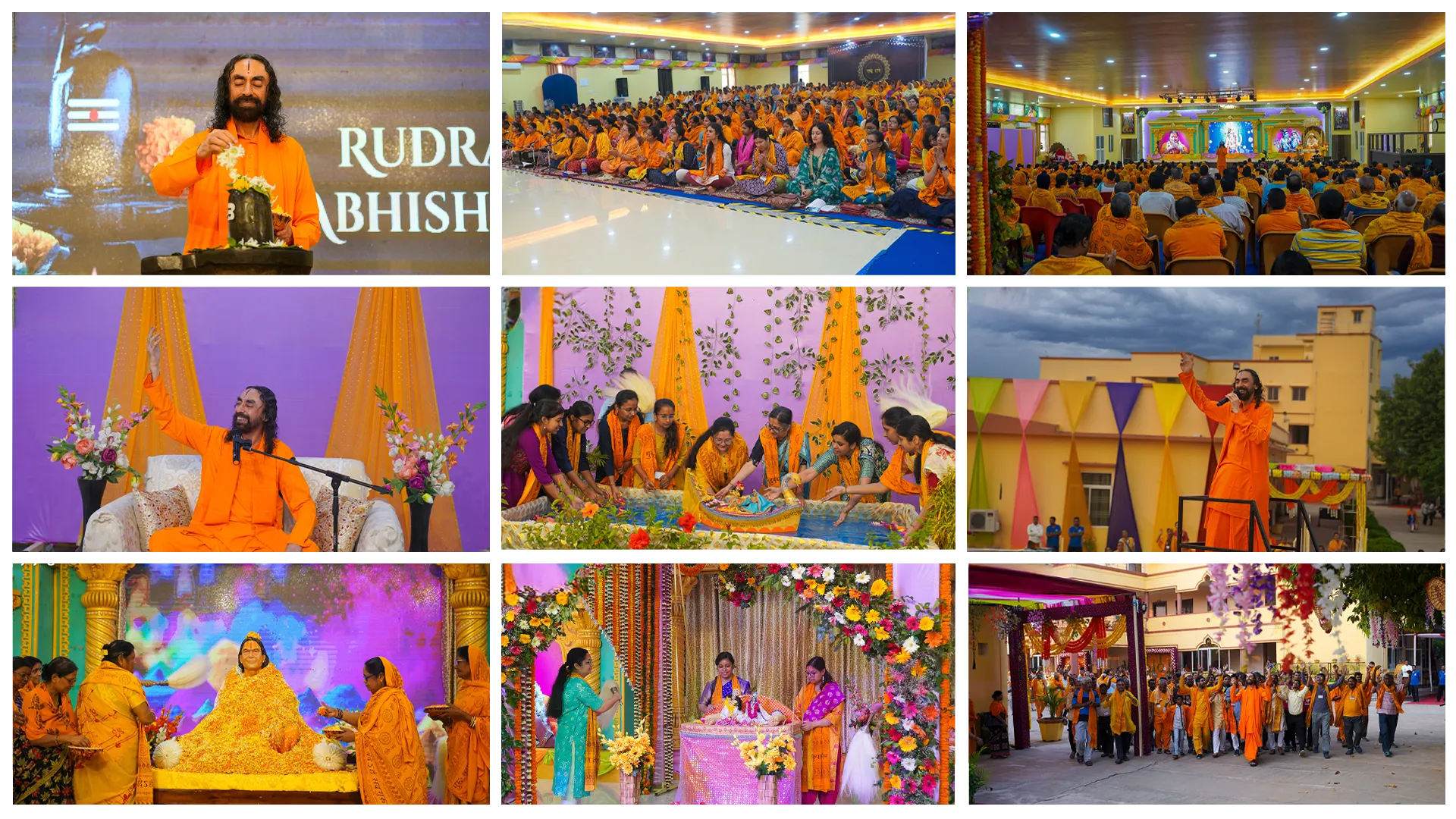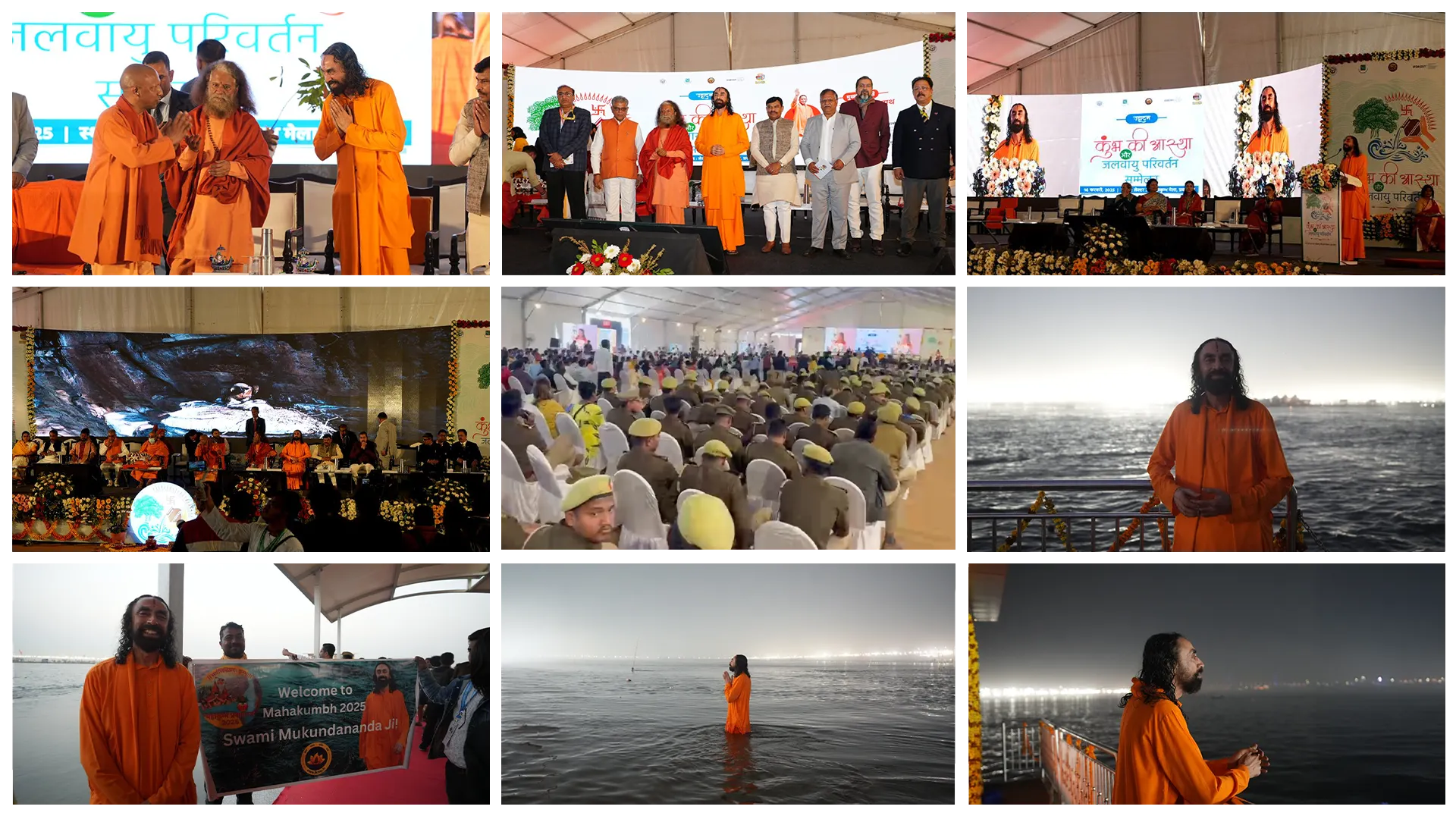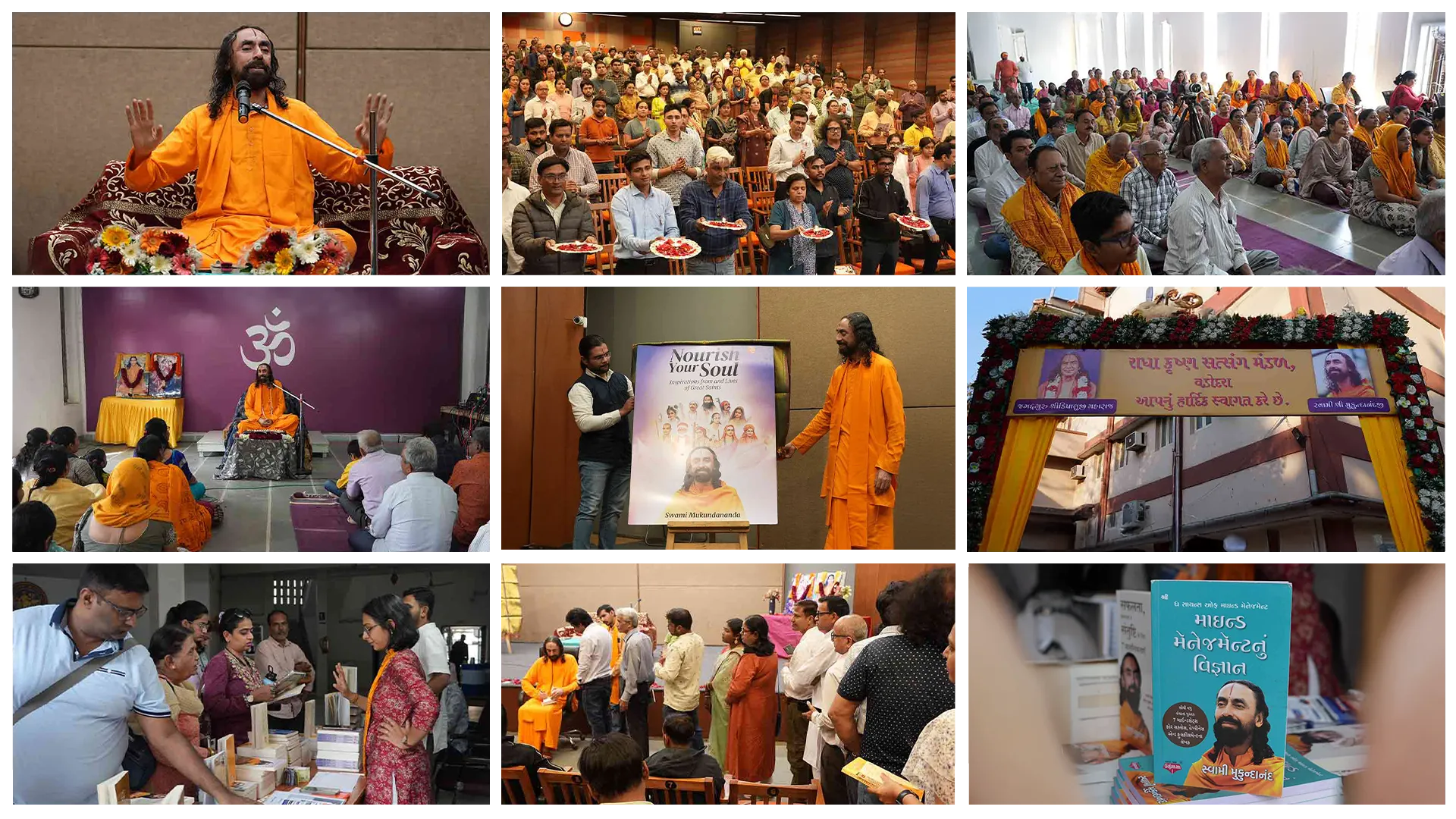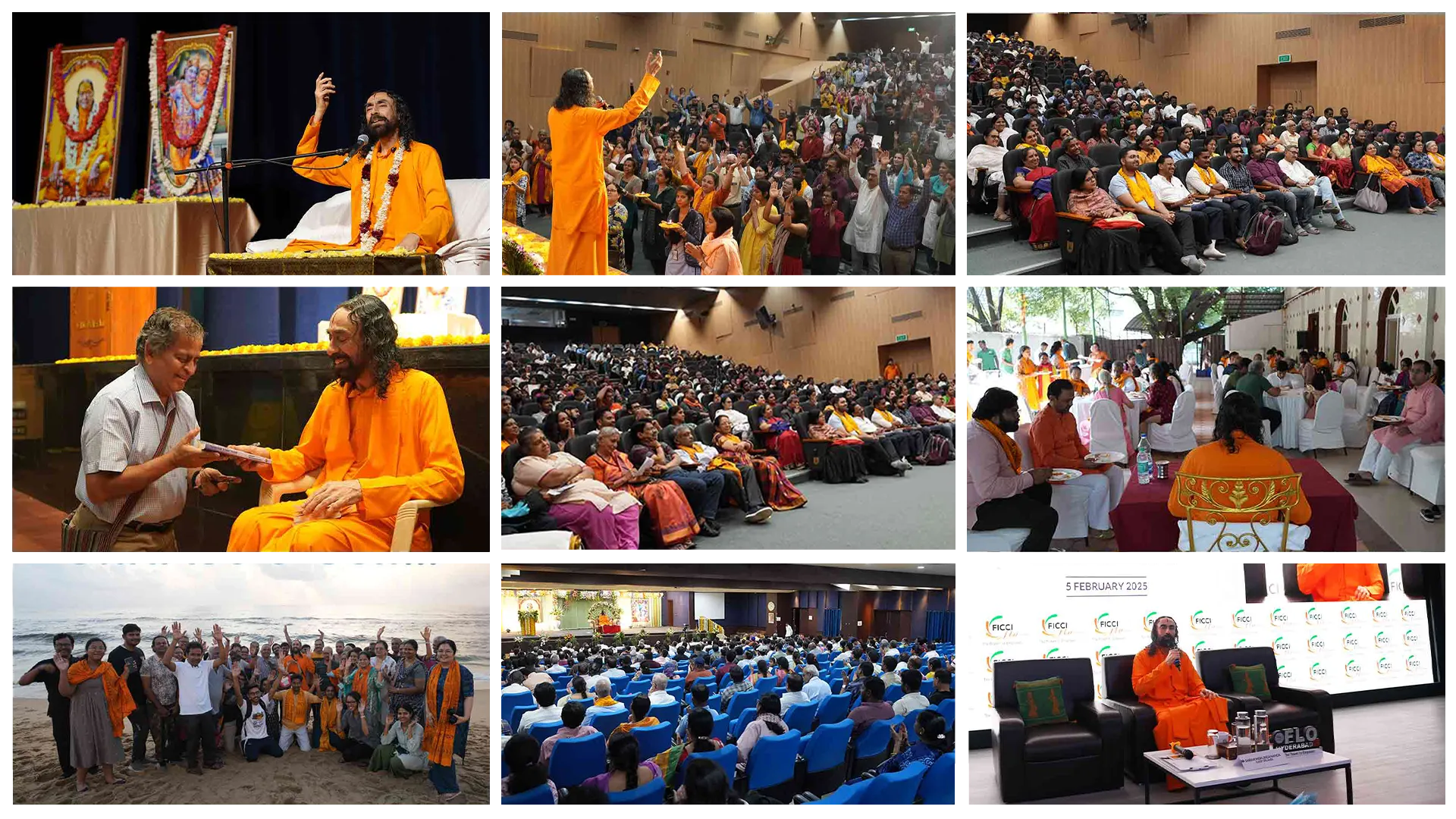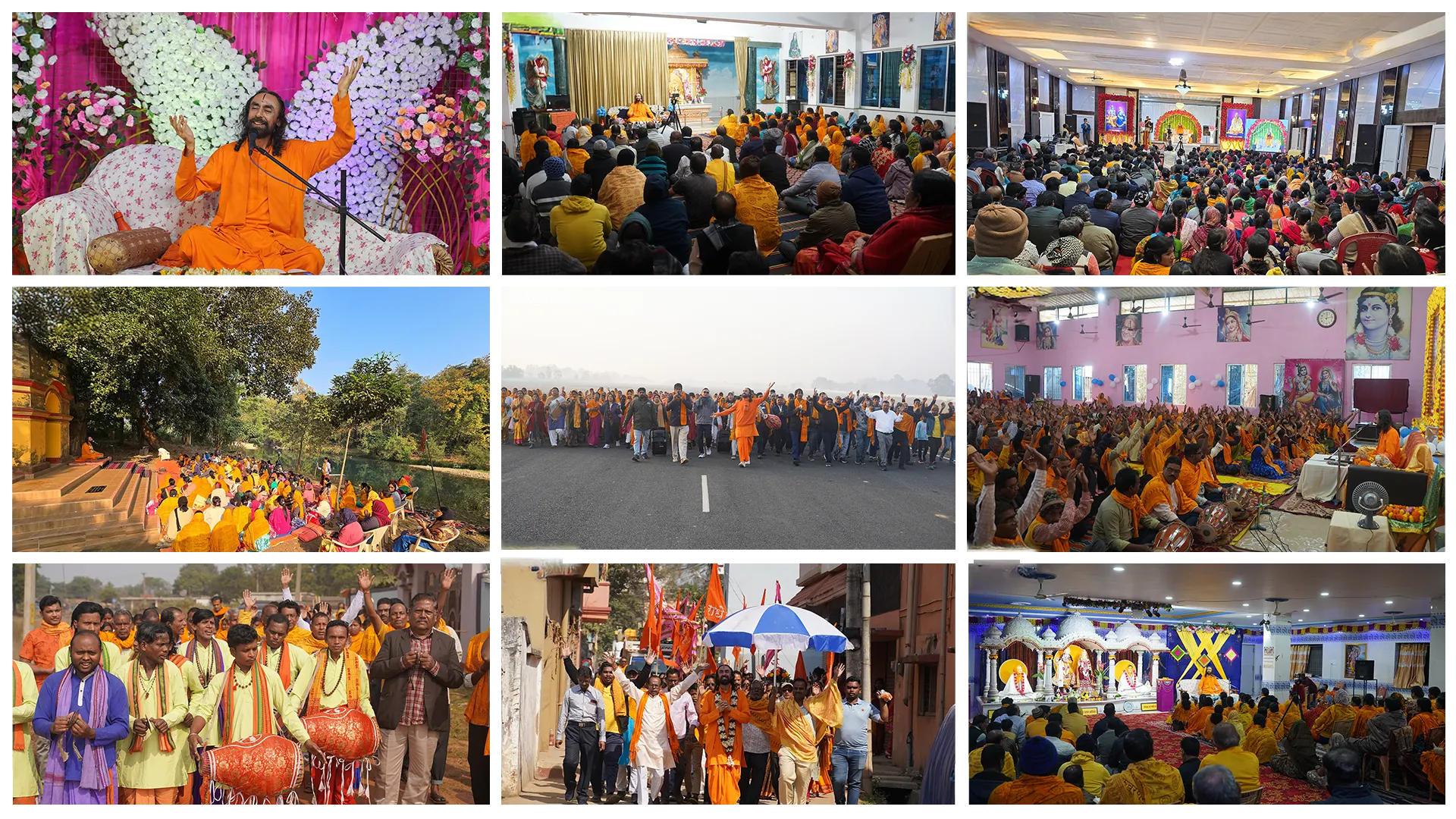The elite and high-profile Amity University, Gurgaon, invited Swami Mukundananda to deliver a talk on "G20 Presidency--Fostering Peace, Harmony & Hope for a Blissful World" on 6th April, 2023. The Honourable Vice Chancellor, Dr. P.B. Sharma, Program Director, Dr. Sanjana Vij, and Admiral K.K. Pandey presided over the program. After the lamp-lighting ceremony, Swamiji, as an esteemed guest speaker, addressed the students, staff, and faculty who had joined in-person and online from the Amity fraternity across different parts of India.
India's G20 Presidency
True to His style, Swamiji, in very simple terms, briefed about G20 formation, its history, and its present functions – contrary to all the Internet jargon. He explained how this is a rare opportunity for India to forge a global dialogue for steering decisions affecting multiple economies in alignment with India's time-tested ancient values, rich culture, and profound philosophical heritage. India assumed the presidency on 1st December 2022 and is striving to take the challenge head-on by planning 200 meetings, covering 32 streams of activity, in 50 cities to spread out opportunities all over the country.
One Earth, One Family, One Future
Swamiji expounded on India's G20 slogan 'Vasudhaiva Kutumbakam', in which "Vasudha" means the earth; "iva", is; and "kutumbakam" means family. Sourced from India's holy texts of Upanishads, it implies embracing the whole earth as one's own family. This is what great minds do, unlike people with small minds who think, 'This is mine, that is mine.' This theme of One Earth, One Family, One Future affirms the significance of all life forms – human, animal, plant, and microorganisms and their interconnectedness on the planet. It resonates with India's commitment to universal brotherhood and the welfare of the world.
Similar to the ecosystem, even the world economies are interconnected today. The rise of global trade, travel and technology has brought us all closer than ever before. That is why a crisis of any kind – environmental, economic, geopolitical, societal, or technological in one nation will find its way to impact the other parts of the world.
Similar to the ecosystem, even the world economies are interconnected today. The rise of global trade, travel and technology has brought us all closer than ever before. That is why a crisis of any kind – environmental, economic, geopolitical, societal, or technological in one nation will find its way to impact the other parts of the world.
Achieving World Peace
In today's economic progress marathon, everyone is running to earn more money so they can buy more things. Unfortunately, all the money in the world cannot buy us clean air, clean water, and clean food. We are getting good education but parallelly we are making the earth full of strife and wars and unhabitable for generations to come.
Swamiji quoted how the Indian culture has deep-roots for veneration for the whole environment. He gave the examples of cows, earth, and rivers – all of which are looked upon as a 'Mother' in our living. Reigniting such perspectives at global forums will automatically lead to lifestyles more conducive to the environment and a peaceful co-existence with Mother Nature.
Transitioning to the need of peace amongst various nations, Swamiji reminisced his earlier lecture at the UN, stating that the world is not a nuclear entity. The World consists of individual entities like you and me. Hence, world peace is possible only when each of us is at peace. Only when all individuals are at peace, the family, subsequently the community, then each nation and finally the whole world can be at peace. So, world peace is possible only through peaceful pieces!
Swamiji quoted how the Indian culture has deep-roots for veneration for the whole environment. He gave the examples of cows, earth, and rivers – all of which are looked upon as a 'Mother' in our living. Reigniting such perspectives at global forums will automatically lead to lifestyles more conducive to the environment and a peaceful co-existence with Mother Nature.
Transitioning to the need of peace amongst various nations, Swamiji reminisced his earlier lecture at the UN, stating that the world is not a nuclear entity. The World consists of individual entities like you and me. Hence, world peace is possible only when each of us is at peace. Only when all individuals are at peace, the family, subsequently the community, then each nation and finally the whole world can be at peace. So, world peace is possible only through peaceful pieces!
Re-evaluating Our Definition of Success
Diving into individual peace, Swamiji revealed some shocking statistics about how over the last 75 years of Independence, the average income has increased by 700 per cent, yet the depression, suicide, and divorce rates have also soared high. Ironically, increased literacy rates have not been successful in fostering goodness in humanity or world peace. It is high time that we re-evaluate our definition of success.
These days, the most prominent measure of success, is to become rich, famous, or our subscriber count on social media. Swamiji illustrated some famous lives who had all of these but lived miserably due to lack of mind management. So, what we value as success is not so valuable after all. Material Science has bestowed us with many powers, but it did not guide us with the sense of good or bad use of that power. Herein comes the significant role of Spiritual Science, which helps us manifest the divinity within.
Prosperity in the real sense means to pursue a higher purpose of life that corresponds with our values and fills us with inner inspiration to remain resilient at the face of obstacles. In alignment, Swamiji mentioned the slogan of the JKYog Foundation, "Do good, be good and feel good".
These days, the most prominent measure of success, is to become rich, famous, or our subscriber count on social media. Swamiji illustrated some famous lives who had all of these but lived miserably due to lack of mind management. So, what we value as success is not so valuable after all. Material Science has bestowed us with many powers, but it did not guide us with the sense of good or bad use of that power. Herein comes the significant role of Spiritual Science, which helps us manifest the divinity within.
Prosperity in the real sense means to pursue a higher purpose of life that corresponds with our values and fills us with inner inspiration to remain resilient at the face of obstacles. In alignment, Swamiji mentioned the slogan of the JKYog Foundation, "Do good, be good and feel good".
India's Heritage of Science and Spirituality
Unlike the western world, where there was always a dichotomy between Science and Spirituality, India's heritage recognized both for their respective roles in our individual lives. Thus, India has the capability to gift this much-needed balance to the world at large for universal harmony and world peace. The agenda of such inclusive growth is well-manifested in the priorities set by India's presidency in G20.
Swamiji's speech was followed by a Q&A session covering a wide range of topics, including the difference between mind and soul, the definition of good and bad, and how to include value systems and change modern beliefs. The session provided students with a fresh and modern perspective on the meaning of life, success, happiness, and spirituality. Swamiji sowed the notion of 'Be Good, Do Good and Feel Good' as a seed in young minds for creating a golden future for their country.
Swamiji's speech was followed by a Q&A session covering a wide range of topics, including the difference between mind and soul, the definition of good and bad, and how to include value systems and change modern beliefs. The session provided students with a fresh and modern perspective on the meaning of life, success, happiness, and spirituality. Swamiji sowed the notion of 'Be Good, Do Good and Feel Good' as a seed in young minds for creating a golden future for their country.



